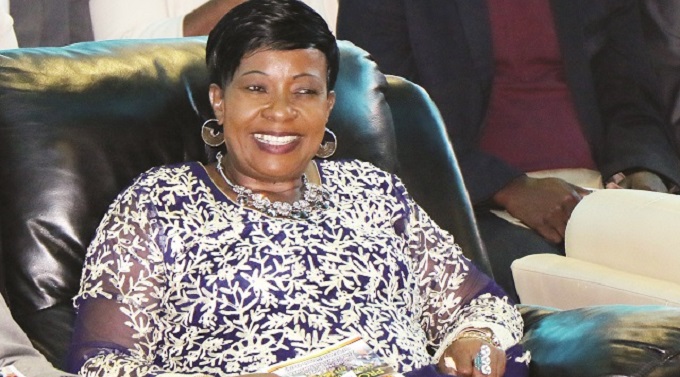Cohabiting, partnerships and polygamy: Is this the Zim we want?

Fr Hlakanipha Mbongolwane
THE Marriage Amendment Bill came with a cocktail of changes some of which are very commendable, given that it is an indubitable fact that the well-being of the individual person and of both human and society is closely bound up with the healthy state of conjugal and family life.
The health of persons in society, and of a society itself, is directly related to the health of the marital and familial community. Thus, the family, in which the various generations come together and help one another grow wiser and harmonise personal rights with the other requirements of social life, is the foundation of society.
All those, therefore, who exercise influence over communities and social groups should work efficiently for the welfare of marriage and the family. Public authority should regard it as a sacred duty to recognise, protect and promote their authentic nature, to shield public morality and to favour the prosperity of home life.
The Government should be commended in this regard.
The Marriage Amendment Bill, approved by Cabinet last month, among other things, criminalises marrying a girl below the age of 18 and pledging of minors for marriage. Moreover, the Bill will include chiefs and other religious leaders to be marriage officers. Such developments are indeed laudable.
Besides that, the rejection of same sex unions by the Bill will go a long way to promote, protect and preserve the marriage institution in Zimbabwe. Indeed, homosexual inclination is objectively disordered; it is contrary to the natural law and can in no way be approved. Of importance to note however, is that every human person possesses a fundamental dignity that is rooted in our being created in the image of God (Genesis 1:27).
The Marriage Amendment Bill is, however, not without difficulties. “We have also now included civil partnership; they are now recognised in this Act. What used to happen on dissolution of this partnership, the other partner was losing out; so it is now recognised as a marriage for purposes of dissolution of property when the partnership is dissolved,” Minister Ziyambi Ziyambi said at a post-Cabinet media briefing last month.
With such pieces of legislation, the precious truth about marriage and the family becomes ever more obscured especially if partnerships are proposed as being equal in status, dignity and rights to that of marriage itself. The respect for marriage and family life will eventually decline.
The social fabric will begin to unravel. Inevitably, there will be avoidance or even rejection of the notion of a permanent commitment; and increasingly the favouring of individualistic choices without regard for the meaning of marriage and family life as the foundation of a morally healthy society.
Marriage can never be considered a temporary or “trial” arrangement. It involves the total giving of each person’s physical, emotional, intellectual and spiritual being without any reservations. When couples choose partnership, however, there is no spiritual foundation for the union, no lifelong commitment, and no promise of fidelity, which leaves the relationship open to high risks of instability. Men and women in partnerships place less emphasis on shared dreams, common values and mutual understanding. They are less willing to make sacrifices for each other.
They tend to speak in terms of “I” rather than “we”. Decision-making and handling of finances tend to be based on “yours and mine” instead of “ours”.
At a time when family life is under significant stress and the so-called global culture suggests that it is not worth making a lifelong commitment or making a definitive decision, ‘forever’, because we do not know what tomorrow will bring.
May all Zimbabweans of goodwill, instead, be revolutionaries and stand out to be counted and promote, preserve and protect the marriage institution, by making life-long commitments and shun partnerships. This will ensure the flourishing of persons, the wellbeing of children and the common good of our society.
Polygamy is yet another debatable issue in the Marriage Amendment Bill.
“We have also extended marriage officers to include chiefs and other religious leaders, the Hindus, Moslems, Vapostori, they are now allowed to solemnise marriages in their religious sectors and these marriages, if there is more than one wife, will be regarded as customary marriage,” said the minister.
While polygamy was and is still being practised in Zimbabwe it cannot be the hallmark of our marriage institution in the Second Republic. Polygamy is a form of marriage in which a person has more than one spouse at a time. In Greek: poly means many + gamos which means marriage.
There are different forms of polygamy, namely polygyny – when a man is married to more than one wife which is the most common form of polygamy; polyandry – when a woman is married to more than one husband at a time; and a group marriage – when a marriage includes multiple wives and husbands.
Polygamy is not in accord with the moral law. Polygamy is contrary to the equal personal dignity of men and women who in an institution of marriage give themselves with a love that is total and, therefore, unique and exclusive. Polygamy does not honour one indissoluble union. Moreover, for the marriage institution to be credible it requires the inviolable fidelity of spouses.
On the other hand, polygamists are not faithful to one person. Thus, protecting the marriage institution in Zimbabwe as a union of one man to one woman is a matter of justice.
The family is a bedrock of any society. Children come to understand who they are and how they fit into this world through their family relationships. Thus marriage between one man and one woman gives stability and permanence, it is good for all society and especially for children.
May it dawn on all legislators and powers-that-be that there will neither be real promotion of the common good nor real human development in Zimbabwe if there is ignorance of the fundamental pillars that govern our non-material goods… [such as] the family, which is the foundation of coexistence and a remedy against social fragmentation.
May God bless our beloved land of Zimbabwe and its families!
– Fr Mbongolwane is a Catholic priest in the Archdiocese of Bulawayo based at Brunapeg Mission. He writes in his personal capacity and the views expressed in this article are not necessarily the official views of the Archdiocese of Bulawayo nor the Catholic Church in Zimbabwe.











Comments